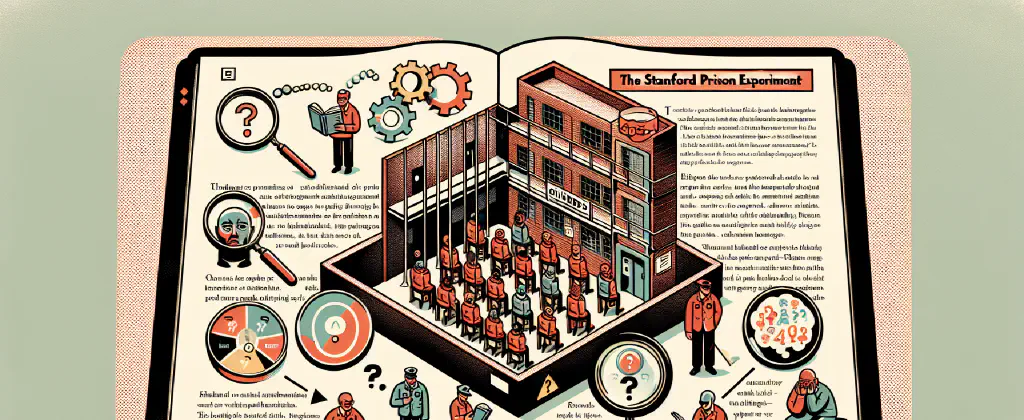15. December 2023
The Stanford Prison Experiment: Unraveling the Controversy

Understanding the context, criticisms, and legacy of the infamous experiment
The Stanford Prison Experiment (SPE) is widely known and analyzed in the field of social psychology. Conducted in 1971 by Dr. Philip Zimbardo, the experiment aimed to study the effects of perceived power on human behavior by simulating a prison environment. However, in recent years, the experiment has come under scrutiny, with claims that it was fraudulent and not a valid scientific study. In this article, we will delve into the controversy surrounding the SPE, examine the criticisms, and explore its implications on the understanding of human behavior.
Unraveling the Claims: Fraud or Misinterpretation?
The debate around the validity of the SPE centers on allegations of fraud and misinterpretation. One criticism raised is that Zimbardo reframed the purpose of the experiment in his response to the debunking. However, defenders argue that the misinterpretation may be attributed to the media and academic community’s own understanding of the experiment, rather than Zimbardo’s intentions.
Critics also highlight the lack of correction by Zimbardo regarding the misconceptions surrounding the experiment in the decades following its initial publication. On the other side, supporters argue that attempting to correct false claims in the media is a challenging and never-ending task, and Zimbardo had made several efforts through peer-reviewed papers, media interviews, and public availability of study materials to address the misinterpretations.
The Role of Intervention and Context
One of the key criticisms directed at the SPE is the intervention and direction provided by the experimenters. Critics argue that explicit instructions and recalling the experiment’s purpose caused demand characteristics, potentially invalidating the results. However, supporters counter that the level of intervention was mild compared to real-life prison and military settings, where authority figures exert far greater pressure.
It’s worth noting that Zimbardo’s instructions to the guards explicitly banned the use of physical force, aimed at creating feelings of powerlessness rather than encouraging brutality. The question arises: can this level of intervention truly account for the pathological behavior observed in the experiment?
Replication and Contextual Considerations
Another aspect of the controversy lies in the replication of the SPE. While the experiment’s failure to replicate has been cited as evidence against its validity, defenders argue that this claim is not entirely accurate. They point to studies that successfully replicated the findings by recreating the cultural and psychological aspects of prison life. Moreover, research into real-world prisons and wartime detainment has indicated similar outcomes to those observed in the SPE.
However, the changing ethical considerations and restrictions on human experimentation make it impossible to recreate the exact conditions of the SPE today. This limitation underscores the challenges faced by social scientists in conducting rigorous experiments with human subjects.
The Legacy and Lessons of the SPE
Despite the controversy surrounding the SPE, it remains a pivotal moment in the study of human behavior. The experiment shed light on the potential for individuals to exhibit power-driven and pathological behavior in certain contexts. It sparked important conversations about the implications of authority, judgment, and group dynamics on human actions.
While some critics argue that the SPE’s flaws undermine its scientific value, others highlight the broader societal relevance of the findings. The real-world examples of authoritarian regimes and abuses of power throughout history provide some support for the concept of people behaving pathologically under certain circumstances.
In conclusion, the Stanford Prison Experiment continues to captivate the attention of both scholars and the general public. It serves as a cautionary tale, reminding us to critically evaluate scientific studies while acknowledging the complexities and limitations of human behavior research. The controversy surrounding the SPE encourages ongoing discussions about ethics, replication, and the contextual understanding of psychological experiments.